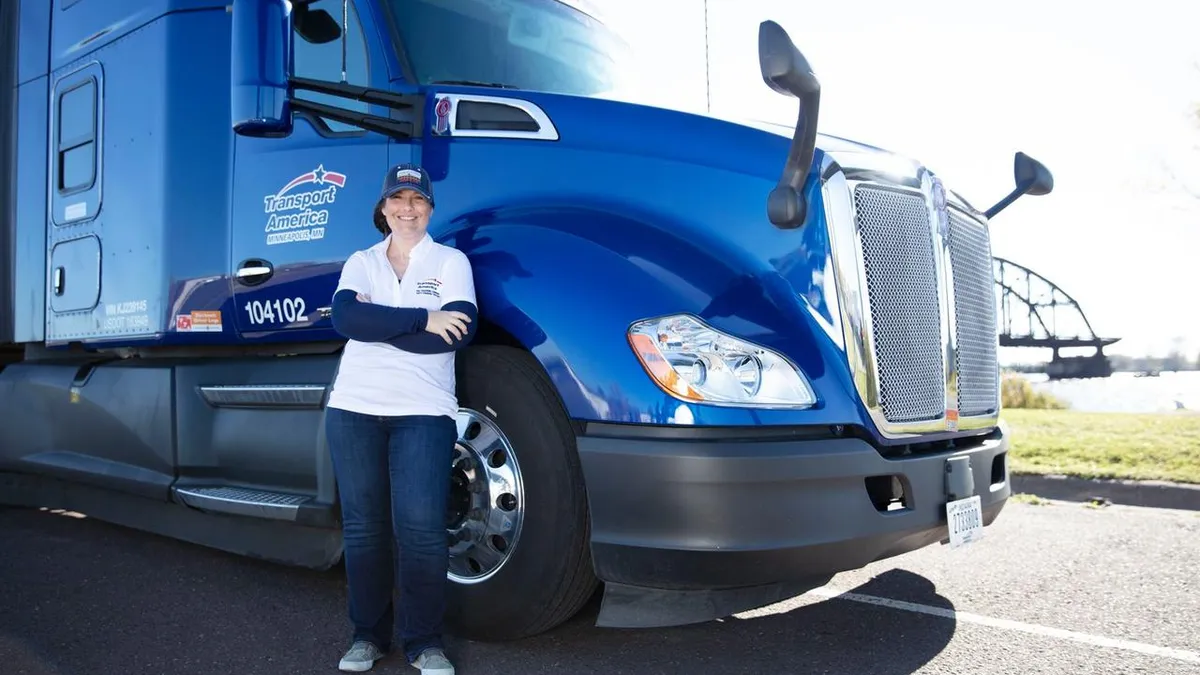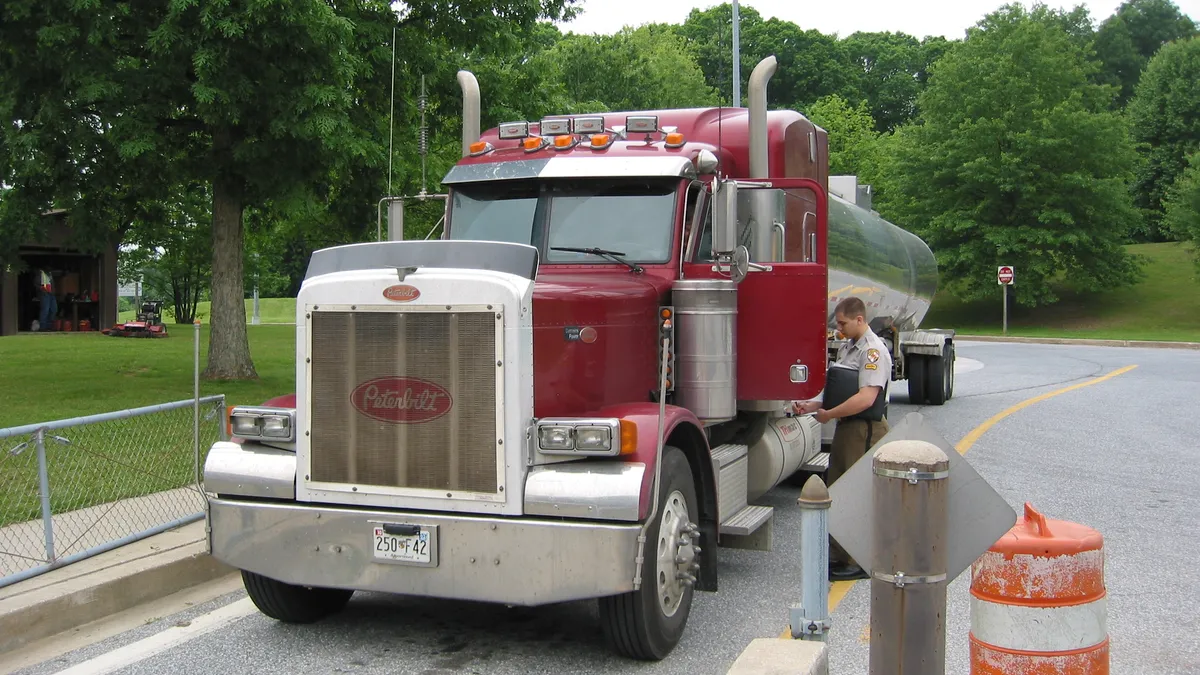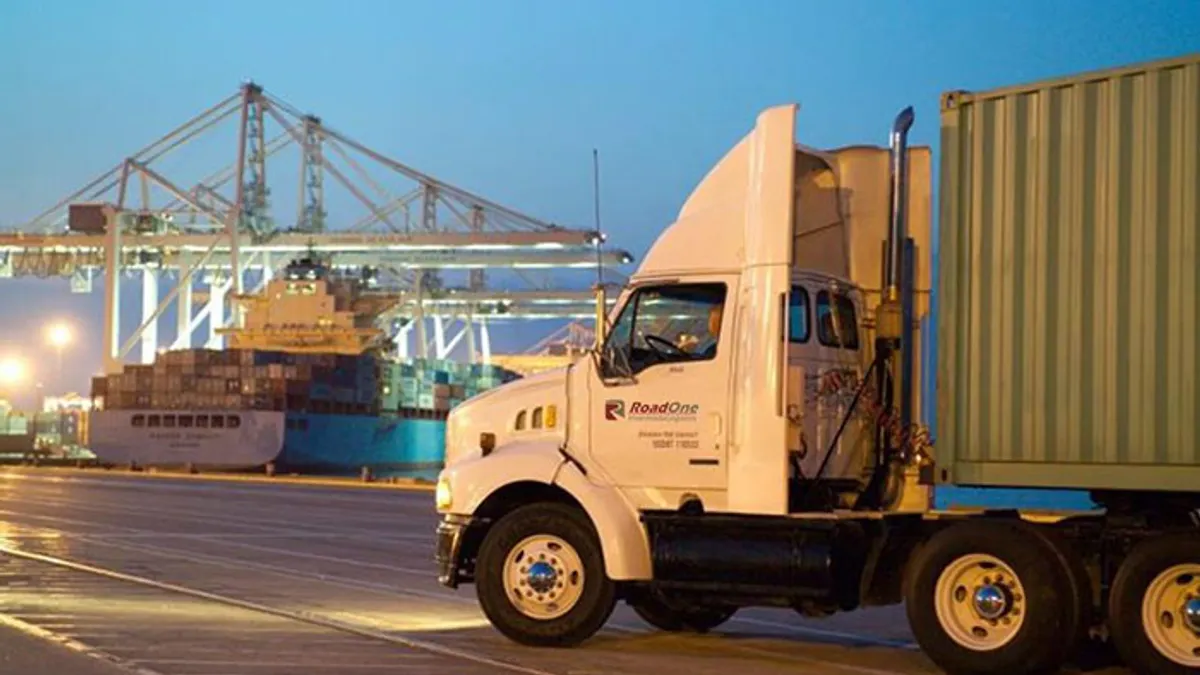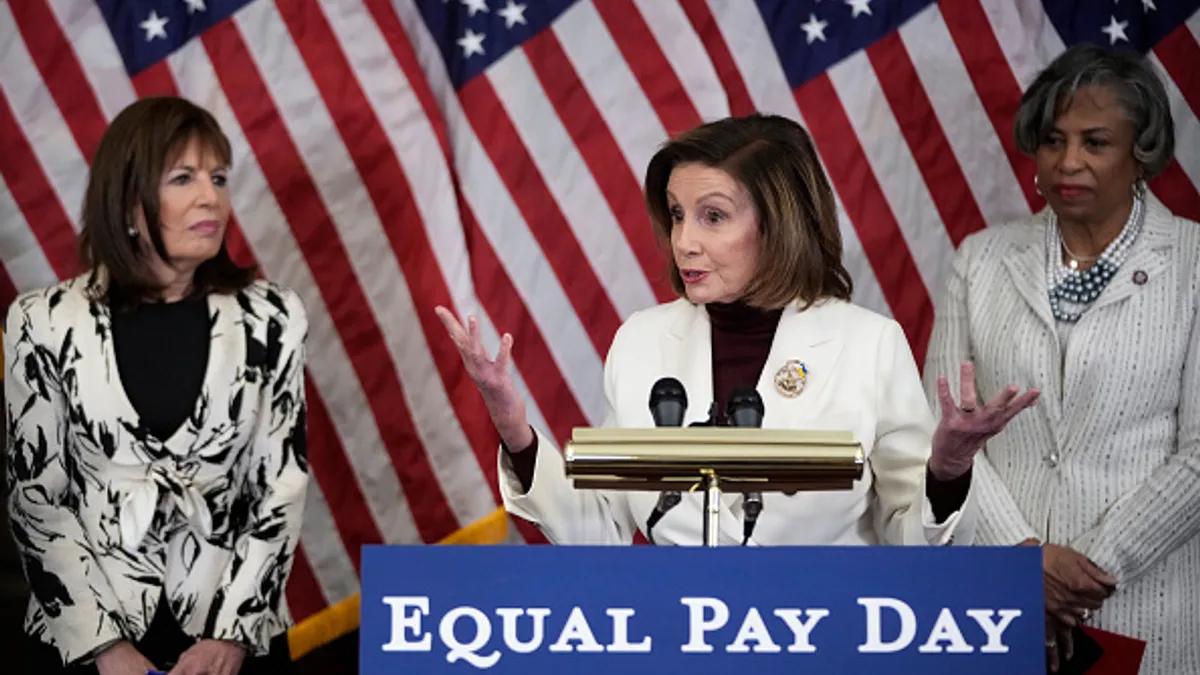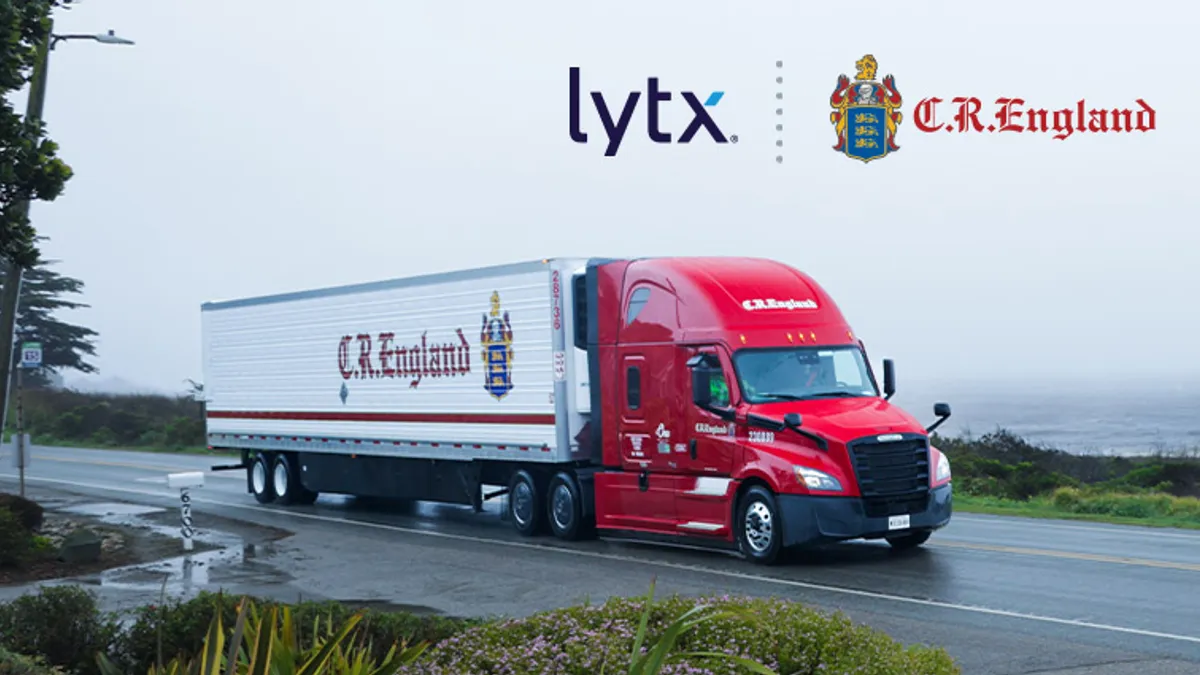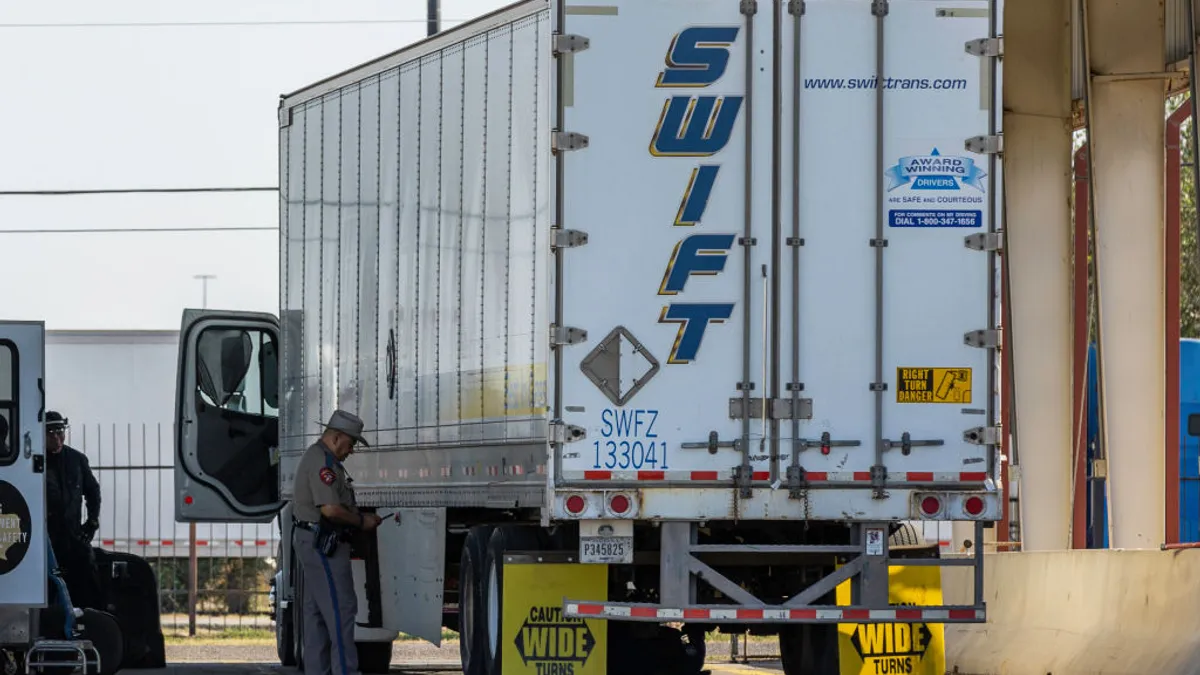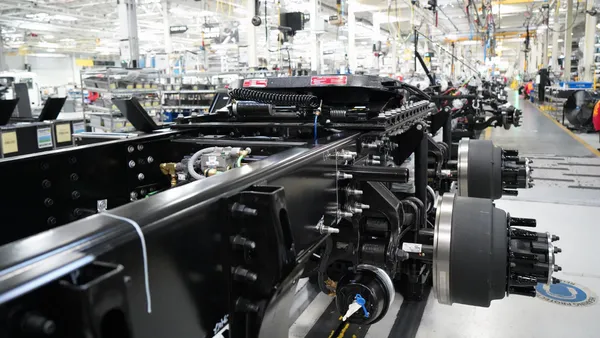Males have dominated trucking since the 1930s when the industry took hold and the government sought to regulate it.
Decades later, Ellen Voie founded the Women in Trucking Association. The mission of this nonprofit organization, created in 2007, is to boost employment of women in the trucking industry, recognize their achievements and diminish the hurdles they face.
WIT created an award two years ago to attract more females as drivers and in leadership positions: “Top Companies for Women to Work For In Transportation.”
Transport Dive spoke with three of the winners about their culture, programs that support women, how they measure their success and what they’ve done to make women in the workplace a priority.
Programs designed to support women in the workplace
Ryder created an initiative in 2011 called the Women’s Leadership Forum, which serves as a platform for Ryder’s female employees to learn from each another, Lesley Kerr, Ryder’s vice president of human resources, said in an email.
“Ryder has an ongoing commitment to addressing the logistics and transportation industry’s gender gap by empowering women to succeed across the company,” said Kerr.
The company employs 6,000 women out of a total of 39,900 employees in the U.S., Mexico, Canada and the U.K. In 2020, 20% of Ryder’s new hires have been female, said Kerr.
Another winner, CFI Drive, retains 245 female truck drivers, which President Greg Orr said is 13% of the fleet’s drivers.
CFI also has a women in leadership program. Once a month, 25-35 female leaders gather and talk through any challenges they’re having.
“About two years ago, a group of our women employees attended an external ‘Women in Leadership’ meeting and said it was good, but missed the mark for what they wanted,” said Orr, adding that he received feedback from his team that the meeting was more focused on entry-level training than professional development.
“So, they created their own program here, and it has grown to be something very special for the team. Anything that we can do to help thought leadership and growth, I totally support it,” Orr said.
Make women a priority
Companies must meet several criteria being declared a winner in the Top Companies for Women to Work For In Transportation.
Criteria includes cultures that promote gender diversity, competitive pay and perks, flexible hours, career development offerings and chances for advancement. Thirteen thousand votes were cast that determined which businesses made the list. The pool of nominees included motor carriers, third-party logistics companies and original equipment manufacturers.
“First we look at the unique needs of individuals, and that’s how we’ve made everyone a priority,” said Eric Anson, president of Transport America, another winner in WIT’s top companies. The firm employs more than 1,300 professional drivers and support team members.
“Studies prove women make safer drivers, so our women drivers serve our customers better.”

Eric Anson
President of Transport America
Giving women a voice at Ryder helps make them a priority, said Kerr.
Female employees and other colleagues connect with leaders within Ryder through the Women’s Leadership Forum, which helps them progress in their careers. Ryder also pairs employees with female mentors to assist in their career progression.
Ryder donates to the WIT scholarship program, so technical training and education become more affordable to women who want a career in trucking, said Kerr.
Women vs. men: playing to strengths and preferences
Females bring different strengths to the trucking industry than males.
“Studies prove women make safer drivers, so our women drivers serve our customers better,” Anson said. At Transport America, 17% of the drivers are women. The American Trucking Associations pegs the industry average for women drivers around 6%.
Training for drivers often includes over-the-road journeys, where the trainer and the student share close quarters. So, having the choice between a female trainer and a male one can make a huge difference to a woman, said Anson.
“Men and women work in different ways, bringing different strengths to the table, so it makes sense that gender diversity can lead to better business decisions,” Kerr said.
Women may alleviate the driver shortage
WIT this year recognized 87 firms as top companies for women, and transport leaders hope that will translate into more women entering the trucking industry.
“This connection could help our capacity shortage,” said Anson. “That will only work if we maintain safety as our core value.”
Orr said CFI looks for the best candidate, but at the same time makes a conscious effort to have diversity in the workforce. He said his staff is approximately 40% female across the total company. To retain them, he ensures there is continual training and development for those who have the desire to grow their careers at CFI.
“Gender diversity can lead to better business decisions.”

Lesley Kerr
Vice President of Human Resources at Ryder
Ryder encourages women to keep applying for roles by showing diversity on its website’s careers page and on social media posts. Ryder also has a video showcasing women and other diverse leaders who talk about why they like working at Ryder.
One way Kerr tracks the diversity at Ryder is by measuring her company against the Bureau of Labor Statistics in different job groupings. She looks at sales, rental and field management roles and compares Ryder to other companies in their industry.
“We are always looking for new sites to post jobs on, reaching out to different agencies to get a diverse slate and looking to our employees for referrals to ensure we get the best candidates,” said Kerr.


